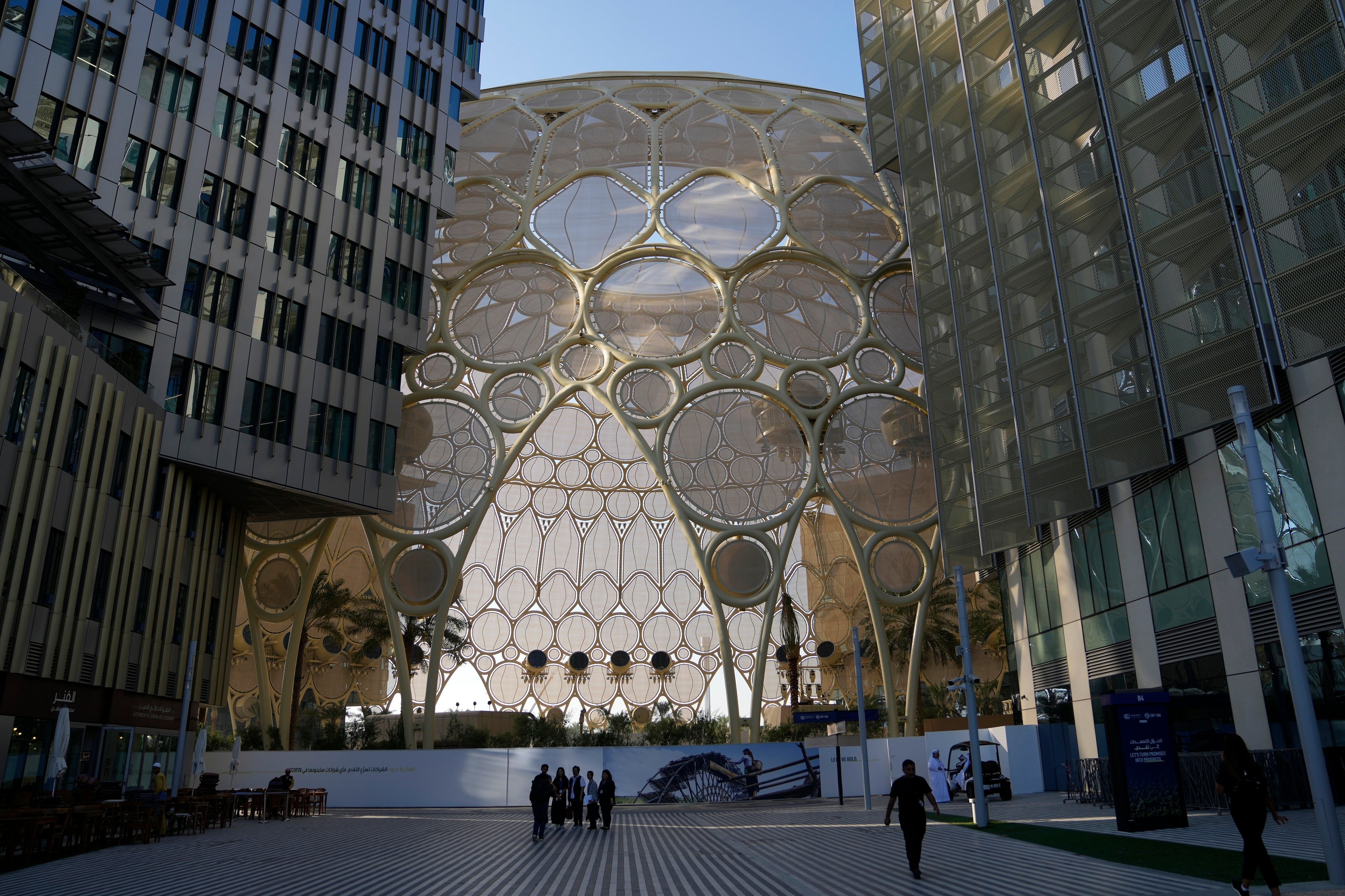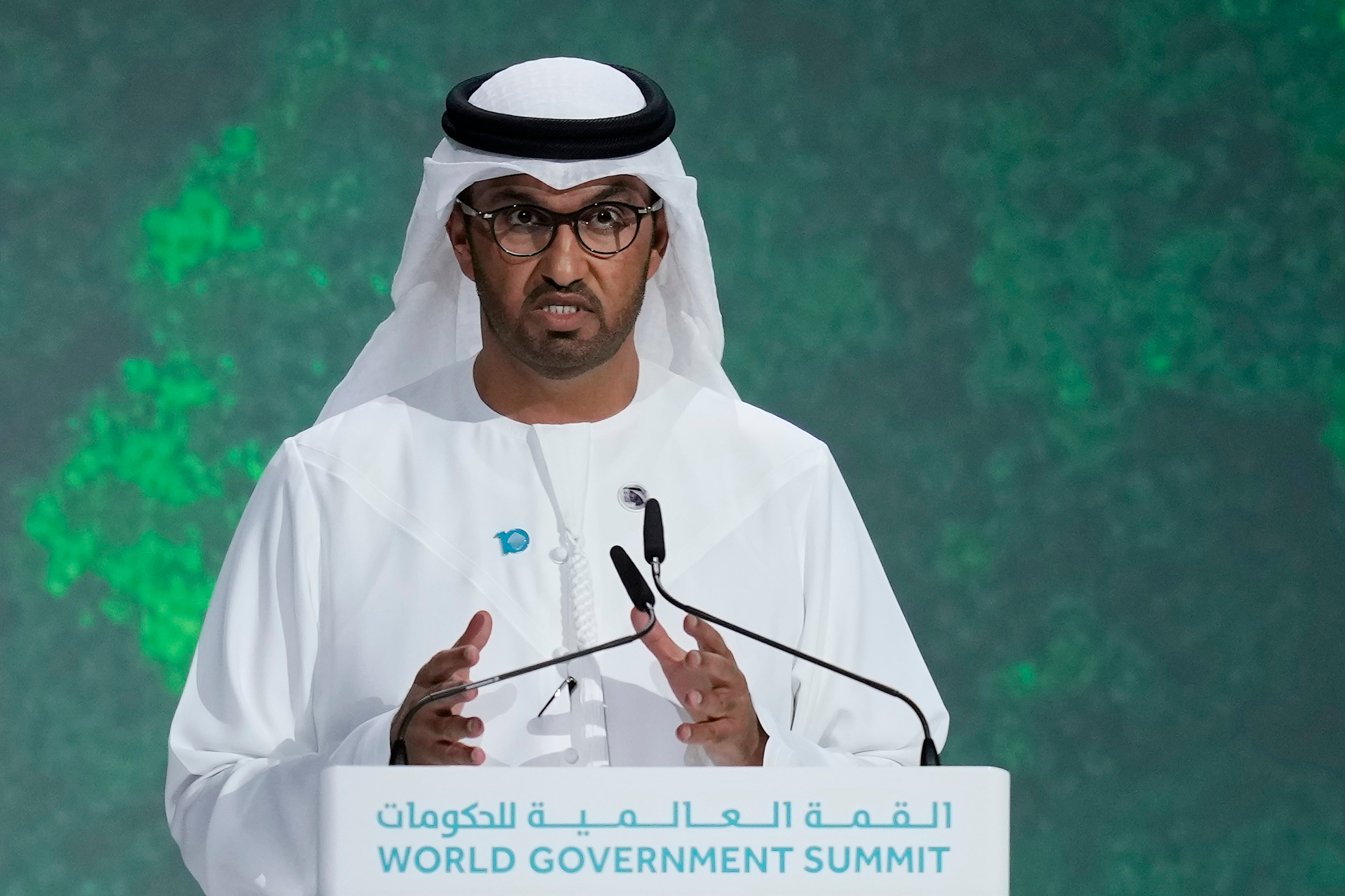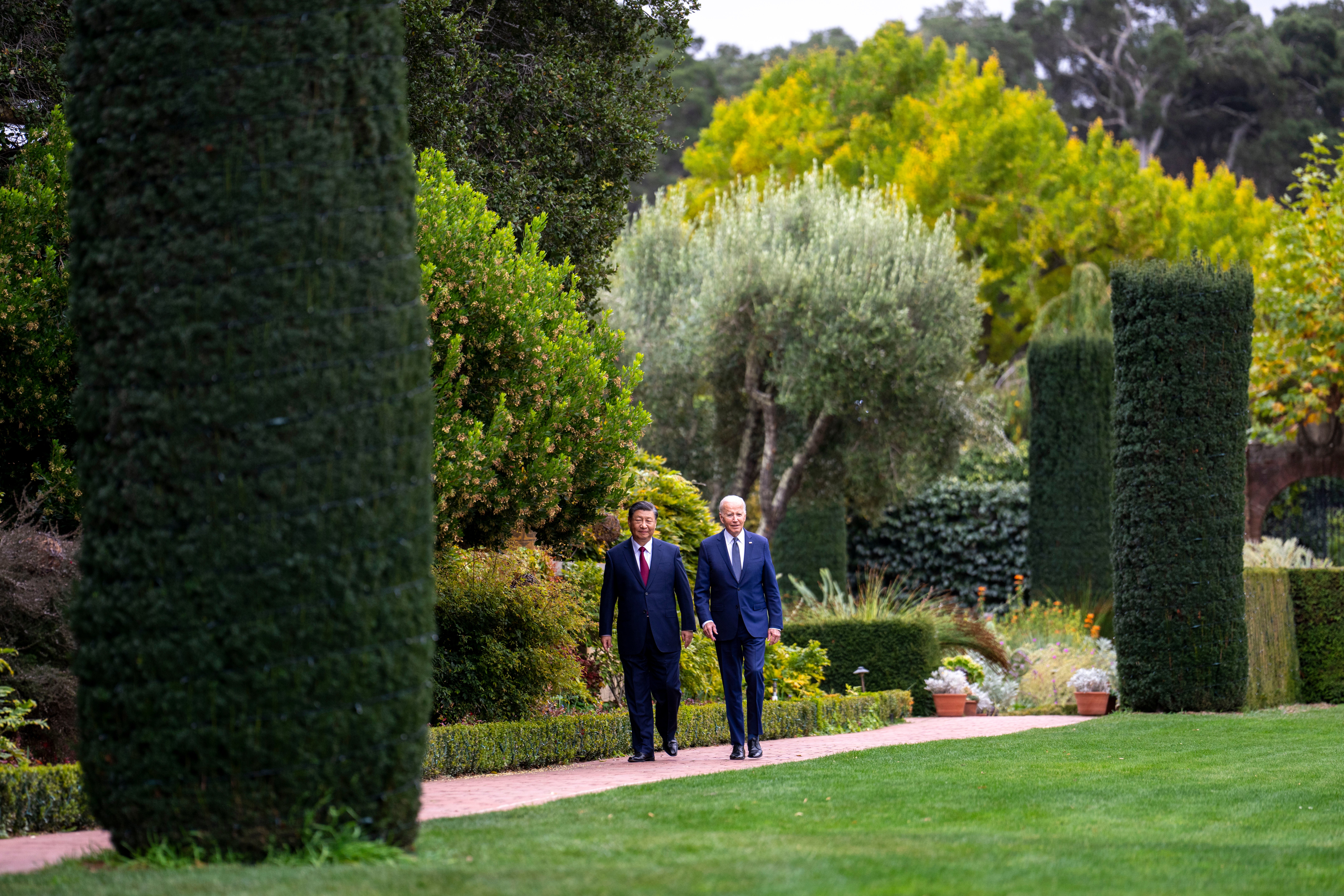The five things to watch at Cop28 in Dubai
The pressure is on Cop28 host, the United Arab Emirates, to deliver progress in this critical decade for cutting emissions, reports Louise Boyle


Your support helps us to tell the story
This election is still a dead heat, according to most polls. In a fight with such wafer-thin margins, we need reporters on the ground talking to the people Trump and Harris are courting. Your support allows us to keep sending journalists to the story.
The Independent is trusted by 27 million Americans from across the entire political spectrum every month. Unlike many other quality news outlets, we choose not to lock you out of our reporting and analysis with paywalls. But quality journalism must still be paid for.
Help us keep bring these critical stories to light. Your support makes all the difference.
The Cop28 climate summit kicks off in Dubai on Thursday. Here’s some key issues to look out for during the annual two-week UN convention on climate change, the biggest event of the year to tackle the climate crisis.
TAKING STOCK
Cop28 will see the first “stocktake” since the Paris Agreement eight years ago — where countries take an inventory of their collective progress in cutting emissions to limit global temperature rise to 1.5 degrees Celsius (C) this century.
But we are far from zero. A recent assessment found that current emissions-reduction efforts leave the world facing 3C temperature rise by 2100 — a heat bomb that could trigger irreversible tipping points, more catastrophic weather, and sea-level rise.
To get back on track, transformational shifts are needed to peak greenhouse gas emissions by 2025 at the latest, and cut them by 43 per cent in the next six years. Deforestation must also be reversed and $450bn in oil and gas subsidies halted.
It means that every climate summit this decade is critical and the pressure is on Cop28 host, the United Arab Emirates, to deliver meaningful progress in the right direction.
This may seem a counterintuitive demand of the UAE, a country built on oil. Cop28 is already steeped in controversy over the influence of the fossil fuel industry on the event. And this was before the BBC and the investigative Centre for Climate Reporting revealed on Monday that the UAE planned to use its role as Cop28 host to strike oil and gas deals. ( “The documents referred to in the BBC article are inaccurate and were not used by COP28 in meetings. It is extremely disappointing to see the BBC use unverified documents in their reporting,” a Cop28 spokesperson told The Independent.)
Yet Cop28 president, Sultan Al Jaber, who also heads the state oil company Adnoc, has been resolute that the conference will be a success and promises to move the climate fight from “rhetoric to real results”. Among the outcomes that UAE is pushing for at Cop28 is tripling renewables by 2030, and doubling energy efficiency. The Cop president is also calling on oil companies to accelerate the decarbonization of their operations — but not necessarily stop producing the products responsible for most emissions.

DOWN, OR OUT, ON FOSSIL FUELS?
Rapidly cutting fossil fuels is essential to any hope of remaining at the 1.5C target.
A large number of countries, including the EU and small island states, scientists and civil society groups, are pushing for this Cop to finally include a call for “fossil fuel phase out” in its final communiqué — an unambiguous, top-down signal to broader society on what needs to happen.
But expect this phrase, along with “phase down” of fossils and a host of other combinations, to cause fraught discussions (and possibly tears) when the summit comes down to the wire. India has backtracked on calling for a fossil fuel phase out since Cop27, while China calls it unrealistic. During a recent briefing with the US State Department, a spokesperson declined to state a position.
“This year is expected to be declared the hottest ever in recorded history. If ever there was a moment for a UN summit to respond to the signals the climate is sending us, this is it,’ said Mohamed Adow, Director at Power Shift Africa, in an email.
‘As emissions continue to rise, and suffering by those that have done the least to cause the crisis worsens around the world, this COP needs to be the moment we set a date for the phase out of fossil fuels. It seems perverse to be holding a climate summit in one of the world’s biggest oil producers, but what more fitting place to call time on the fossil fuel era that has caused this climate catastrophe and prepare the way for a future powered by renewables."
MONEY, MONEY, MONEY
Big gaps in finance, and the aura of distrust between rich and poor countries, will once again be a major issue at Cop.
In 2009, developed countries committed to providing $100bn per year by 2020 to help developing countries take climate action. This goal was met in 2022, according to the OECD, but there is a lack of concrete data and calls for more transparency are growing.
The Loss and Damage Fund — a hard-won success of Cop27 last year — is expected to be made “operational” in Dubai. The fund, to compensate poor countries for irrevocable climate change losses which they did little to cause, is being hosted by the World Bank for the time being, and has a “floor” of $150bn per year. At Cop28, it’s expected that pledges may reach the $500m mark and include donations from the EU, Denmark and the UAE. John Kerry said the US will contribute “several million dollars” to the fund — despite nixing that suggestion earlier this year.

US-CHINA INFLUENCE
The recent meeting between the US and China — the world’s largest carbon polluters — has created optimism ahead of the conference.
Despite tensions on many fronts, the two superpowers signed an agreement earlier this month saying they would work together on climate, and in particular, pledged to increase methane cuts. Though carbon dioxide grabs more headlines, methane, which leaks from oil and gas operations, landfills and livestock, is a major problem. It traps more than 80 times the heat of CO2 over a 20-year time period so cutting it is one of the quickest ways to prevent more warming.
There are no concrete promises in this pledge. However, Gina McCarthy, a former White House national climate advisor, said at a briefing last week that the importance of the US and China meeting face-to-face after several tense years shouldn’t be underestimated when it comes to provoking others to join them in more ambitious climate action. While neither US President Joe Biden or Chinese leader Xi Jinping are attending Cop28, their longtime climate envoys, John Kerry and Xie Zhenhua, will pick up the baton on the ground in Dubai.
CONFLICTS AT COP
Climate summits are microcosms of the world at large, and what happens inside the Cop bubble over two weeks will reflect broader geopolitics.
To that end, the explosion of the Israel-Hamas war last month is likely to impact climate progress. For example, Jordanian Foreign Minister recently told Al Jazeera that Jordan will no longer sign a deal providing energy to Israel in exchange for water. “Can you imagine a Jordanian minister sitting next to an Israeli minister to sign a water and electricity agreement, all while Israel continues to kill children in Gaza?” said Minister Ayman Safadi.
The Middle East conflict is also expected to further destabilize the global energy market as the war in Ukraine enters a second, hard winter. The Russian invasion now also appears to be impacting the future of international climate talks. Eastern Europe was scheduled to host Cop29 but UN officials have been unable to announce a location as Russia is refusing to allow the summit to be held in an EU country and tensions between Azerbaijan and Armenia means that they are blocking each other’s bids.
Join our commenting forum
Join thought-provoking conversations, follow other Independent readers and see their replies
Comments